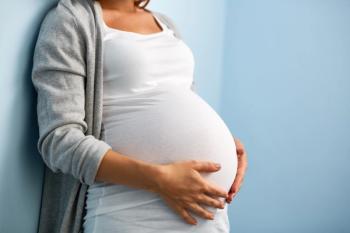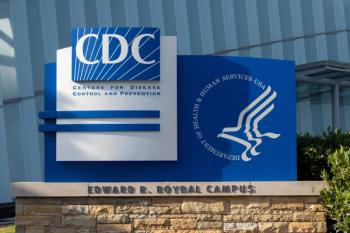
A study found that prenatal cannabis use does not significantly alleviate depression or stress, emphasizing the need for safer mental health treatments during pregnancy.

A study found that prenatal cannabis use does not significantly alleviate depression or stress, emphasizing the need for safer mental health treatments during pregnancy.

A recent study highlights the prevalence of misinformation in hysteroscopy-related TikTok videos, emphasizing the need for accurate, reliable content to better educate patients.

A study highlights the rise of hybrid prenatal care during the COVID-19 public health emergency, though telehealth's potential remains underutilized across racial and geographic groups.

Find out which articles were the most popular during 2024.

Check out the 5 most popular video interviews of 2024.

A new study finds that brief, incidental bursts of vigorous activity significantly reduce cardiovascular event risk, especially in middle-aged women.

Researchers developed machine learning models capable of predicting metabolic syndrome 2 to 7 years postpartum, using factors such as blood pressure, cholesterol, and stress levels.

A new study highlights the prognostic value of thrombocytes, β2-microglobulin, and cytomegalovirus viral load in assessing congenital cytomegalovirus infection, offering insights for improved prenatal counseling.

Can you guess what condition Tiny Tim had?

New research reveals that nearly half of women experience more pain than expected during medical abortion, highlighting the need for improved pain management counseling.

Recent research published highlights the potential of electronic health record data to improve postpartum depression diagnosis, offering a step toward better mental health outcomes for birthing parents.

In a recent literature reveal, no significant changes in biomarker concentrations for metal exposure were reported in patients using tampon vs non-tampon users.

Discover how human papillomavirus self-collection in health care settings could expand cervical cancer screening access while preserving the essential role of ob-gyn care.

A recent study highlights improved sexual function and reduced distress among nonheterosexual women during menopause compared to their heterosexual counterparts, shedding light on how sexual identity impacts well-being.

New evidence-based recommendations provide a clearer pathway for diagnosing and treating premature ovarian insufficiency, improving outcomes for women worldwide.

Review some of the top stories from the Contemporary OB/GYN website over the last week, and catch up on anything you may have missed.

Despite modest increases in life expectancy, the United States is set to fall behind globally in health-adjusted life expectancy because of rising obesity rates and other health risks, according to a comprehensive forecast.

A recent study introduces the COronary Risk Score in WOmen, improving the prediction of major adverse coronary events in women and addressing gender gaps in cardiovascular research.

Pregnant women infected with avian influenza face a 90% maternal and 86% infant mortality rate, underscoring the urgent need for pandemic preparedness and protection strategies.

A new study highlights a significant association between spontaneous miscarriage and increased risks of anxiety and depression, especially among women with low social support.

The FDA has added a boxed warning for fezolinetant (VEOZAH; Astellas), highlighting the rare occurrence of serious liver injury in patients taking the menopause treatment.

A quality improvement project highlights the benefits of starting human papillomavirus vaccination at age 9 years to increase uptake and reduce disparities in cancer prevention across pediatric populations.

A recent study reveals a significant association between COVID-19 infection and abnormal uterine bleeding, emphasizing the need for better understanding of post-viral impacts on menstrual health.

Learn about updated cervical cancer screening recommendations, their benefits, and how they address health disparities to improve outcomes for all women.

A CDC report highlights the complex patterns and key risk factors of intimate partner violence-related homicides among Hispanic and Latino individuals, urging comprehensive prevention efforts.

A recent analysis highlights the heightened risk of adverse pregnancy outcomes, including preterm delivery and cesarean sections, among women with uterine fibroids.

A new study underscores the critical need for gynecologists and mental health professionals to collaborate in managing anxiety, depression, and sexual dysfunction in women with endometriosis, driven by chronic pain and related comorbidities.

A recent review established guidelines for prenatal diagnosis and care of vasa previa, outlining its definition, screening and diagnosis, management, and timing of delivery in asymptomatic patients.

In a recent study, an inverse relationship was discovered between anti-Müllerian hormone levels and early menopause, highlighting the need to develop interventions for fertility preservation based on genetics.

Data released by the Centers for Disease Control and Prevention has indicated reduced abortion rates across multiple subgroups in the United States.